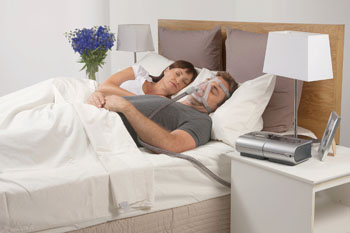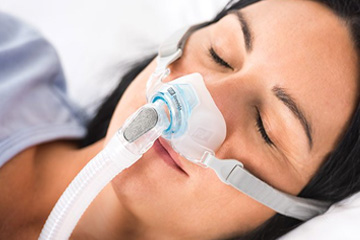Professional Services for All Your Sleep Technology Equipment

What Causes Insomnia? Signs, Symptoms & Treatments
There are two key symptoms of abnormal sleep; the inability to sleep and the feeling of sleepiness during the normal waking period.
What is Insomnia
The inability to sleep is called insomnia and this can manifest as trouble getting to sleep and/or trouble getting back to sleep after waking up during the night. Transient insomnia has been experienced by most adults, and usually relates to some acute stress, but as the name notes does not continue. Chronic insomnia is defined as at least 3 months of trouble initiating or maintaining sleep for a minimum of 3 nights per week. The more insomnia effects awake functioning the more severe it is considered. Trouble focusing, irritability, sleepiness, depression, and fatigue are common complaints of insomnia. Severe prolonged episodes of no sleep can present as acute psychosis.
Causes of Insomnia
There are multiple causes of insomnia but they usually fall into one of four categories. Psychological issues such as anxiety, depression and other mental health issues can cause insomnia. Most commonly, having insomnia promotes further sleep deprivation as the fear of not sleeping propagates the insomnia, whatever the underlying cause.
Underlying health issues can disturb ones’ ability to sleep. Pain syndromes, trouble breathing, heartburn, and poorly controlled diabetes are just a few examples of causes that lead to sleep disorders.
Disturbance in the normal physiology of sleep can lead to insomnia. Restless legs and sleep apnea are just two examples.
Medications can also cause insomnia. Any medications that can be stimulants are obvious culprits, such as medications for ADHD or asthma. There are numerous other medications that can also lead to insomnia. Alcohol and illegal drugs can often severely disrupt sleep patterns.
What is Hypersomnia
The feeling of sleepiness and falling asleep inappropriately during the wakeful period is called hypersomnia. However, sometimes the complaints may also involve severe fatigue, lack of energy and the inability to concentrate. The increase risk for motor vehicle accidents is a very significant concern for patients who note these complaints.
Causes of Hypersomnia
Multiple causes also exist for sleepiness including insomnia, forced lack of adequate sleep, medications, and primary sleep disturbances such as sleep apnea. Less commonly narcolepsy is a distinct cause of hypersomnia.
Sleep apnea is by far the most common primary disturbance of normal sleep physiology that can lead to complaints of sleepiness. Sleep apnea is defined as repetitive episodes of ten seconds or greater where there is no airflow or decrease in airflow associated with a drop in the blood level of oxygen. Many are unaware of their symptoms of sleep apnea, such as snoring or irregular breathing. People who suffer from sleep apnea are more likely to complain of headaches that result from substantial changes within the bloodstream because of airway obstruction. Significant sleep apnea may also contribute to hypertension, heart disease and mortality. There are many treatments for sleep apnea including lifestyle changes, positional therapy, and CPAP therapy.
What You Can Do
The key point is that these common symptoms of trouble sleeping, experiencing unrefreshing sleep and sleepiness during the day may signal underlying issues that can usually be successfully addressed and treated. Specialists in Sleep Medicine have the training and experience in most instances to improve these problems.

CPAP Machines

BiPAP Machines

